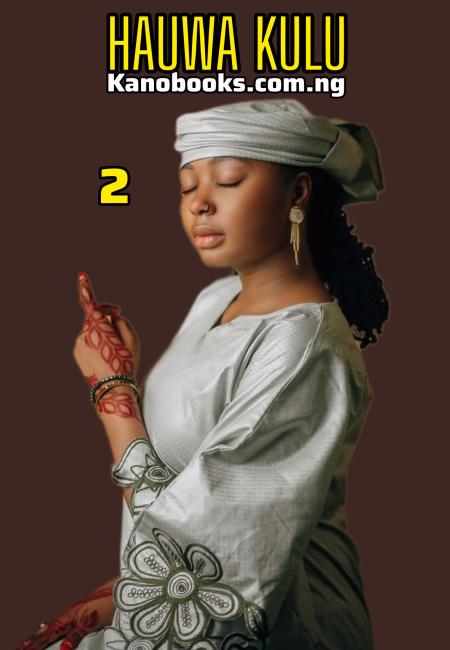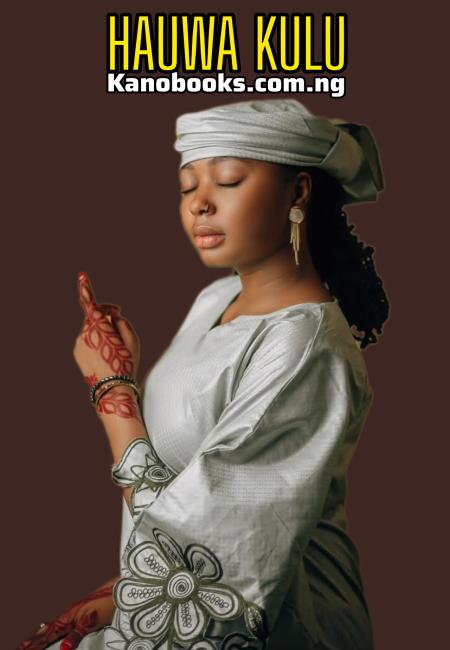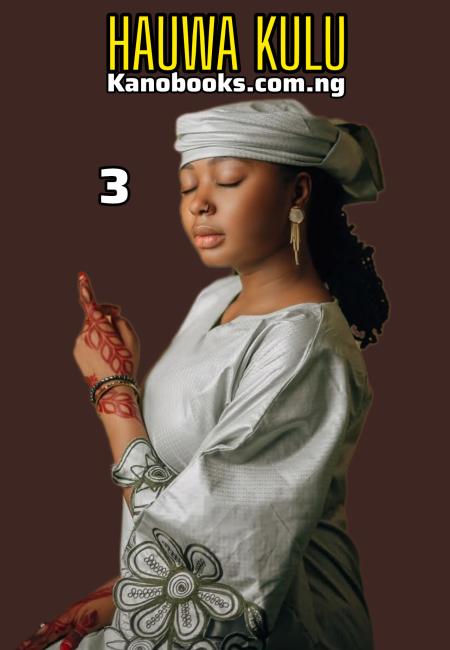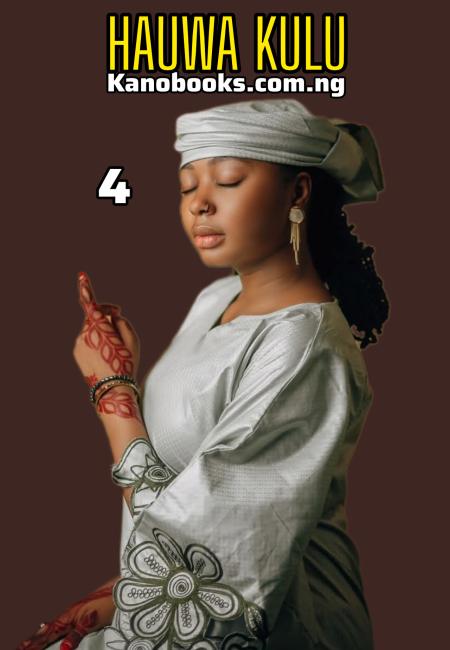
HAUWA KULU Yar Cikin Badala Part 2 BY TAKORI.pdf
23 Fri 05, 2025
53
1290
File Size: 1.09 MB
Format: PDF
Phone Number:
Group: Mace Mutum Writers Association
Compiler: Mace Mutum Writers Association
Book Album: None
Last Download: 36 minutes ago
---
Every day, from dawn till dusk, my father—known in our neighborhood as "Baban Hauwa," like most responsible fathers among the people living within the walled quarters of Badala and the ancient city walls of Kano—always had one thing on his mind: what time would he wake up tomorrow to go out to the market or to his place of work?
Not for any other reason, but simply to find food to feed himself and his family for that day.
Everyone knew that, at that time, more than half of Kano’s people were traders engaged in buying and selling. That was why nobody went to bed hungry, and everyone had something to eat the next day. People didn't keep savings in the bank, and it wasn't necessary to live on credit either. Despite that, people lived in peace and happiness. This was the true essence of life in our household.
Let me begin by telling you my story. I am HAUWA-KULU, and I will start from the root—by building it upon the walls of our shared life in the households of Kano, particularly the quarters known as 'yan kwaryar BADALA. The way our parents lived in Badala was the kind of life that would amaze any non-native of Kano.
It was the sort of life that visitors would go away and talk about, because as the saying goes: “Though there is one God, every town is different.”
---
THE HOUSE OF MALLAM BILYAMINU
Our home was spacious and generous. It was the typical style of houses built by Kano natives in the 1970s—a traditional structure, located deep within the twisted alleys of Badala. Our house was situated behind the historical old Badala, specifically behind Badala Kofar Naisa. At that time, I, Hauwa-Kulu, was about ten years old.
Though located in a maze-like alley, our house was generously sized. My father, Mallam Bilyaminu, inherited it along with his brother, Mallam Zakari. Eventually, a dispute arose between them over the house, and it escalated to the point where they were brought before the local chief of Kofar Naisa. It was suggested that the matter be taken to court, but the chief advised against it, saying it was unwise for blood brothers to go to court over worldly possessions. Even though he knew Zakari was in the wrong—because he wanted sole ownership of the house—the chief suggested one brother sell the house to the other to resolve the issue.
Zakari agreed to sell his share because he needed capital for his business and valued money over the property. Thus, Mallam Bilyaminu bought it from him in the presence of the chief and neighbors, becoming the sole owner. Zakari moved to Kofar Dan Agundi, bought a small house with half the money, and continued his cap-washing business. Because of his love for the house, Mallam Bilyaminu renovated it to suit the modest needs of a typical Badala household.
Our home was built from mud, plastered with cement, and finished with white clay that made it shine brightly. The air was always fresh, just as the hearts of the people living there—Mallam Bilyaminu and his wife, Inna Safiya—were pure.
Each morning or evening, especially during the harmattan season, a pleasant breeze would flow through the courtyard, thanks to the tall trees—umbrella trees and Darbejiya—that had been planted there since the house was built. Their branches stretched out gracefully, and when the wind blew, dry leaves would fall gently to the ground. But you'd rarely see them litter the place because Inna Safiya (fondly called "Innar Hauwa") was always sweeping. She had no hesitation when it came to cleaning. Her passion for tidiness was legendary—everything in the house was spotless.
You could even eat a morsel that fell on the ground without worry. Despite our modest financial means, our family held cleanliness as a pillar of faith—nazafa. It became a symbol of our home. Even though we raised various animals, you'd never guess, because Innar Hauwa swept the house thoroughly every morning and evening.
She kept domestic animals—goats, rams, and sheep—in a section of the house fenced off with wooden slats. When the animals were let out into the courtyard, she'd clean the area immediately. Often, yellow umbrella fruits would fall in the yard, and neighborhood children would come early in the morning before school asking, “Innar Hauwa, has the umbrella fruit dropped?”
She would collect the washed fruits and hand them out to the children, who would leave smiling with joy. The fruits were very popular among the children for their sweet taste.
The trees created such shade that our courtyard resembled a small garden. They provided cool, comfortable shelter, especially during the heat of Ramadan or on scorching days. Our house had just three rooms—one for my father, one for my mother (Inna), and one for me. There was a kitchen made from wood and zinc and a traditional outdoor toilet. All of Inna’s daily chores—pounding grains, preparing spices, washing clothes, making peanut oil—were done under the trees. Sometimes she’d make oil by hand just because she didn’t trust the hygiene of store-bought products.
Inna did everything herself. She was strong and healthy, like the women of old, made tough from all the grinding, pounding, and stirring. She took herbal medicines seriously and regularly consumed remedies for ailments like indigestion and hemorrhoids.
The courtyard was big enough to build another room, but my father preferred to leave it open for family use, understanding how central it was to our daily life. Everyone knew the people in the old quarters of Kano—like our Badala—lived a communal, secure life. There was harmony, neighborliness, and mutual care. People truly loved one another.
During the 1970s to 1990s, life in Kano’s inner city was remarkably affordable. For instance, it was common for neighbors to share food. You couldn't eat alone without offering some to others, or at least sit together and drink tea in the evening. This practice strengthened community bonds.
In our area—Kofar Naisa—this was the norm. My father and his neighbor Mallam Isa would, every night after prayers, bring out their food, spread a mat in front of our house, and eat from one bowl, washing their hands from the same kettle.
Shops selling basic needs lined every alley in Badala. Everything was available for sale. Parents would send children out for hawking without worry. There was clean, affordable food sold from homes, plenty of hand-pump wells, and no water shortages. Even the poorest lived in comfort.
Truly, living in the inner city houses like ours in Kano was the only way to enjoy these blessings—and it’s what qualified one to be called a true Kano native, a Bakano, not an outsider or foreigner.
---
THE KANAWA OF DABO
The people of Kano are famously called Kanawan Dabo. I, Hauwa-Kulu, am proud to be a native of inner Badala in Kano. That’s why I’m telling my story from the beginning—starting with where I was born and raised.
Kano is hailed with the praise name: “Ta Dabo Tumbin Giwa – No matter what you bring, someone here has more.” This nickname traces back to the royal Dabo dynasty, especially Emir Abdullahi Bayero, and further to Emir Ado. Kano is a city of women, wealth, ancient city walls, and countless historical gates and alleys.
Kano’s history is long and independent, stretching from the Habe rulers to the colonial era, through the era of Maitatsine and its emirs. It’s too vast to summarize in a single book introduction. But I can boldly say: Kano surpasses all northern states in noble royal history, Islamic and Western education, and commerce.
It’s well known that a Bakano never sits idle. Nor does he tolerate ignorance—no matter his age. A beard doesn’t stop a Bakano from seeking knowledge.
From youth to elders, men and women, everyone in Kano strives for learning. Even married women back then were students. After evening prayers, they’d leave their homes modestly dressed for night schools. In the mornings, adult education centers like Gidan Galadima and Gidan Makama would be full.
Almost everyone had something they were learning or doing—either a trade or a profession inherited from their parents. There were no lazy Bakano men or women. Even government workers took on side jobs in markets like Kwari, Bata, Kofar Wambai, Singa, or Kurmi.
Most Kano residents relied completely on business, not government jobs—even if they had some education. My father, Mallam Bilyaminu of Kofar Naisa, was one of them.
He sold second-hand children’s clothes at the Kofar Wambai market. That business sustained our family and earned him a reputation as a caring father with a true Bakano spirit—honorable and responsible. He once worked as a messenger after completing secondary school, but he left that job to fully focus on the market.
Everyone who knew Mallam Bilyaminu—before he suddenly disappeared—knew him as a man who was deeply committed to his work and family. He never saved anything for himself if his family lacked.
Before me, my parents—Inna Safiya and Babanmu Mallam Bilyaminu—had a son named Zulkifilu, who died young at fifteen while swimming with other reckless boys. Then came me, his younger sister—Hauwa-Kulu, or just Kuluwa. I answered to any of those names.
Only Inna called me “Hauwa” or “Kulu.” But if she was upset or wanted to tease me, she’d call me “Kuluwa.”
Mallam Bilyaminu was known for his good relationship with neighbors and fellow traders. Everyone in Kofar Naisa and Wambai had only good things to say about him.
That’s why his sudden disappearance shocked everyone.
I am now the only surviving child out of five. Some died as infants, some were stillborn. Since me, Inna never conceived again. I know she loves me deeply—maybe because I’m the only one Allah left her with.
Since that day my father went to the market and never returned, Inna has searched endlessly. She sent me everywhere she thought he might go. She even visited his brother Zakari’s house in Dan Agundi—despite knowing he rarely went there.
As the elders say: “When something you love goes missing, look even where you least expect.”
When she arrived, Zakari came out to stand in front of his house, sneering arrogantly. Then, with mockery in his voice, he said to Innar Hauwa:
“Have you lost your mind? Or did you hide him in my back room and forget?”
---





